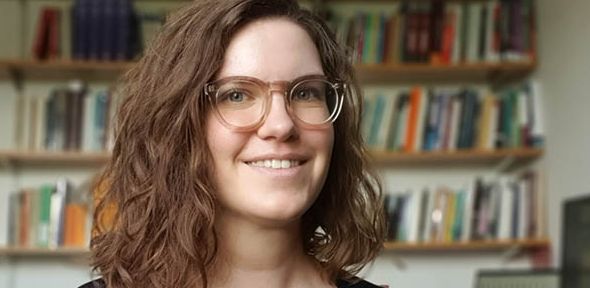
Warmest congratulations to Dr Doriane Zerka on the publication of her book, Imagining Iberia in Medieval German Literature.
Doriane is the Leverhulme Early Career Fellow at the Faculty of Modern and Medieval Languages and Linguistics, and her book explores how medieval Iberia was a porous boundary zone between Europe and Africa, a space at once liminal and peripheral, both a gateway and a border defined through cultural and religious alterity, challenging post-medieval notions of East, West, nationhood and Europe.
Examining the ideological implications of real and fictional travels to the Peninsula in German-language texts ranging from the twelfth to the fifteenth century, the book considers the construction of individual and collective identities, religious, cultural and political. Combining the work of Michel Foucault, postcolonialism and network theory, she sheds light on the ideological processes contributing to the construction of any cultural entity modern audiences might call ‘Spanish’, ‘German’ or ‘European’. Doriane Zerka is Leverhulme Early Career Fellow in the Faculty of Modern and Medieval Languages and Linguistics, University of Cambridge. A porous boundary zone between Europe and Africa, a space at once liminal and peripheral, both a gateway and a border defined through cultural and religious alterity – medieval Iberia challenges post-medieval notions of East, West, nationhood and Europe. Examining the ideological implications of real and fictional travels to the Peninsula in German-language texts ranging from the twelfth to the fifteenth century, Doriane Zerka considers the construction of individual and collective identities, religious, cultural and political. Combining the work of Michel Foucault, postcolonialism and network theory, she sheds light on the ideological processes contributing to the construction of any cultural entity modern audiences might call ‘Spanish’, ‘German’ or ‘European’.


